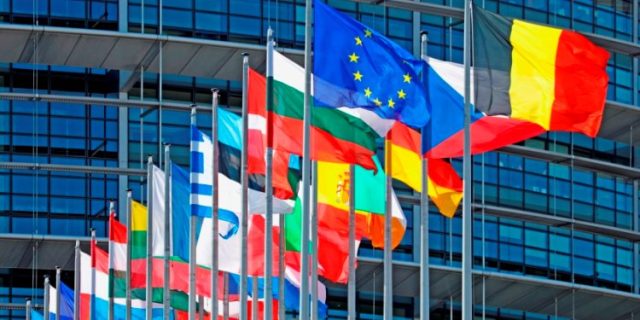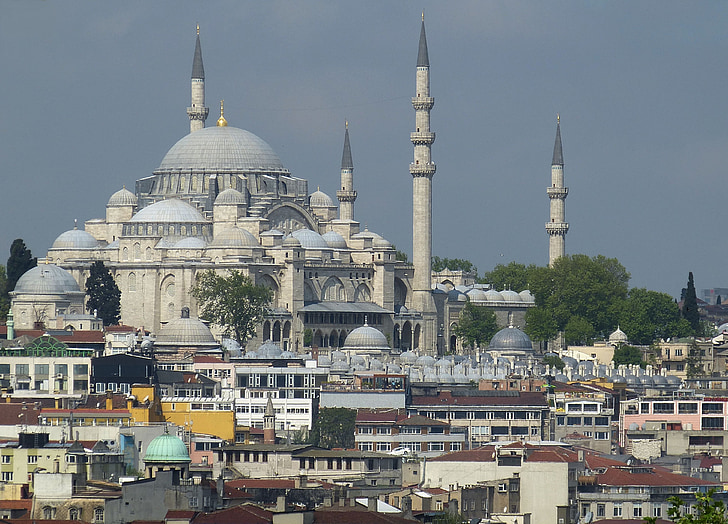
Several parliamentary and presidential elections around the world in 2023 could prove to be very important for Europe. Also, the long election campaign for President in the US will undoubtedly have repercussions on the future direction of the European Union.
The state of the economy, rising inflation around the world, rising unemployment, corruption, national security, judicial independence, peace and war, the Russian-Ukrainian conflict that has driven energy prices to astronomical heights will be the main campaign issues that will be raised by those hoping to win this year’s elections.
US campaign directly influences the rest of the world
After the November 2022 midterm elections, the US has experienced a major political crisis not seen since 1856. Republican Kevin McCarthy was elected Speaker of the House of Representatives, the third most important figure in US politics after the president and vice-president, only in early January after 15 rounds of voting. It was the first time in 100 years that voting for speaker of the House of Representatives did not end after the first round.
How much President Joe Biden is able to advance policy on the United States and relations with the world depends on the new composition of Congress in Washington over the next two years. It is also known that the choice of the Speaker is likely to play a significant role in next November’s election campaign, which is already underway.
In January 2024, the first intra-party elections will begin and contenders for the White House should announce their intention now to allow enough time to raise funds and allies. Both Democrats and Republicans are not expected to nominate their candidate until the summer of 2024 at national conferences. If Joe Biden can afford to wait, if he wants another term, the campaigns of the other White House hopefuls should begin in the summer but no later than early autumn this year.
Washington’s policy towards NATO, the conflict in Ukraine or trade relations with the European Union will not change significantly in 2023. However, the movements of this period in the American political scene through the messages of those who want to become the 47th President of the United States may reveal processes that will prove to be decisive signals of change in early 2025 with the start of new terms in both the White House and on Capitol Hill.
Turkish elections – also important for relations with the US, Russia, Syria, Iran and the Middle East
Turks tend to call all presidential elections historic. It is well known that Turkey has moved from a parliamentary system to an executive presidential system of government. Thus, according to the 2017 referendum, as of 2018, Turkey has given up the office of prime minister and switched completely to a presidential system of government. The countdown to parliamentary and presidential elections in Turkey has begun. The vote will take place on the 14th of May despite the devastating earthquake that killed more than 46,000 people and destroyed entire areas of southern and southeastern Turkey. The elections were originally scheduled for the 18th of June 2023, but with June weekends being busy due to national university entrance exams, the Turkish government has moved the date forward to May 14.
The Washington Post headlines: “In 2023, the world’s most important election will be held in Turkey”. Why is it considered the world’s most important election? The answer is simple. Depending on the outcome, the geopolitical and economic calculus in both Washington and Moscow, as well as in the capitals of Europe, the Middle East, Central Asia and Africa, will be reshaped.
Erdoğan has been in power in Turkey for 20 years and is about to face the biggest electoral challenge in his two decades in power due to rampant inflation that has affected the living standards of the Turkish people. Erdoğan’s government has also faced major criticism for its handling of the emergency response to the February earthquake. The question on everyone’s lips is whether, in his ambition to continue to dominate politics, economic and financial decisions, religion and many other areas, Erdoğan will leave any room for opposition in public life. If he wins, Erdoğan could present himself as the country’s second most important leader after Mustafa Kemal Atatürk, the founder of 21st century Turkey.
Russia sees its relationship with Turkey as the only chance to avoid sanctions. Turkey, for its part, is the only NATO country not to have followed through on sanctions against Russia after the outbreak of the conflict in Ukraine. Turkey’s deplorable economic situation, with inflation exceeding 80% and a middle class that has become enormously impoverished, is forcing Erdoğan to “import” money from Russia in order to revive the country’s financial system before the elections. For this and other reasons, Erdoğan’s relationship with Moscow is frowned upon by NATO countries.

To defeat him, Turkey’s main opposition parties have formed an alliance. The six-party alliance has nominated Kemal Kilicdaroglu, leader of the Republican People’s Party (CHP, social democrats), to challenge head of state Recep Tayyip Erdoğan in the presidential election. If Erdoğan loses, some political analysts wonder whether the Ankara leader will recognise the result. A regime change in Ankara can be felt across Turkey’s political and economic world. From legal action against Erdoğan and government officials appointed by him for alleged wrongdoing to his friends in business for alleged corruption. The outcome of May’s elections will also determine the future of religious-state relations. So, there is a possibility that Turkey’s Directorate of Religious Affairs, which currently controls 80,000 mosques and is a key Erdoğan ally, may prove to have limited powers.
According to a poll released in early March, Turkey’s leader Recep Tayyip Erdoğan was led by his rival Kemal Kiliçdaroglu by 13 percentage points. The poll was conducted by the ORC institute between the 3rd and the 6th of March. According to respondents, Erdoğan is credited with 43.2% of the vote, while Kiliçdaroglu, the united opposition candidate, has 56.8% of the vote.
Greece – elections to be won by conservatives led by Prime Minister Kyriakos Mitsotakis
Shortly after the Turkish elections and also in May, Greece will also vote in parliamentary elections. According to opinion polls, conservative Prime Minister Kyriakos Mitsotakis’s New Democracy party looks set to win the elections but, unlike four years ago, the party may have to seek a coalition partner to form a governing majority. One of the reasons is that the rule that the winner of the most votes gets a bonus is waived for the first time since 1990.
This bonus represents 50 MP seats, aiming for a more stable parliament than the standard proportional distribution system of 300 seats produces. The rule has been in place for 33 years and was changed by law by far-left Syriza in 2016, but only comes into force at this year’s elections. This electoral bonus rule was changed in 2020, so shortly after the New Democracy conservatives came to power, they corrected this rule with a different and much more complex bonus system, which will come into force no later than 2027. The legitimate question arises whether all these repeated changes will not slow down the decision-making process in very dynamic times for Europe.
Poland – PiS has a good chance to win again
The term elections for both houses of parliament in Poland are due to take place in the autumn, in late October or early November. Poland’s national-conservative Law and Justice (PiS) party has been in power since 2015, and its leaders have shown they are ready to unleash nationalist, anti-Brussels, populist and even anti-German rhetoric in an effort to win this year’s elections.
By contrast, the opposition, represented by Donald Tusk, former President of the European Council, maintains a national line on defence issues, ties with the US and aid to Ukraine. The Polish opposition also constantly criticises the anti-European stance of the Warsaw authorities and presses for answers to the energy policy failures it blames. On the European front, if the Law and Justice party loses the election, it would leave Viktor Orbán even more isolated. In the light of the fact that Eastern Europe, due to the war in Ukraine, has today more weight, Warsaw has the potential to strengthen its position as a political and gravitational centre for important EU decision-making.
2023 – Europe prepares for a new European Parliament and European Commission
The EU will have a new European Parliament and Commission in less than a year and a half. The first big moments of the campaign are already being felt in 2023. Hundreds of millions of EU citizens will be asked to vote in next spring’s elections. Depending on the results, it will also determine who will be president of the European Commission, what its structure will be and who the national European commissioners will be. In the run-up to next year’s elections, we are seeing rising tensions in several European countries, with more conflict in the streets, which will most likely be used by certain nationalist parties to create an upward trend.
Mention should also be made of the elections in two key African and Asian countries with populations of over 200 million. These are Nigeria and Pakistan.
At a time when the scale of violence plaguing the African state has not been seen since the end of the civil war in 1970, Nigeria has a new president. After eight years under President Muhammadu Buhari, who took over in the country’s first peaceful transfer of power, this year’s elections have declared the ruling party’s candidate, Bola Tinu, the winner. The 70-year-old won 36% of the vote while his main rival, Atiku Abubakar, got 29% and Labour’s Peter Obi 25%. Bola Tinubu will have a tougher time dealing with Nigeria’s problems as the country faces a crumbling economy, widespread insecurity and, as the results map shows, a country that is retreating into regional and religious blocs.
At the other end of the spectrum in Asia, Pakistan is the country where important parliamentary elections are theoretically scheduled this year, but the exact date of the elections is not known. Pakistan is in an economic crisis, an environmental disaster and a crisis of confidence in the authorities. The next government will have to negotiate again with the International Monetary Fund, because without a supplementary bailout it will not have the liquidity needed for the state to function.



 Subscribe
Subscribe